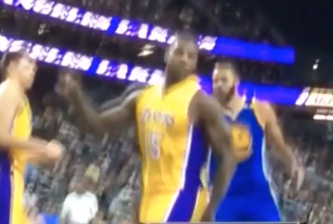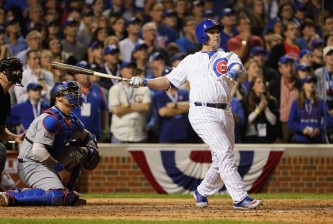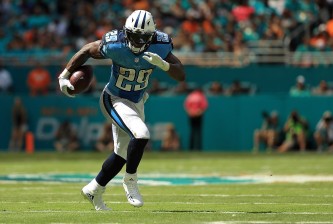As we inch closer to the start of the World Cup opener on June 12, let’s take a look at the teams by group. Teams have until June 2 to drop players and/or add replacements, although FIFA does not have to post their rosters until June 5. For countries where the player talent pool is smaller, reducing the roster from the provisional maximum number of 30 down to the officially mandated roster ceiling of 23 can be an easier chore than a country like Argentina, who could probably field more than one team given their ability to develop top flight footballers.
Thirty-two teams divided into eight groups, each fighting to advance out of their respective group and into the round of 16 and beyond. In the coming days, we’ll take a look at each group, the teams and its players, and whether or not they’ll advance beyond the group stage. My rankings will appear from the bottom team to the top, with the top two teams advancing beyond the group stage to the round of sixteen.
4. Cameroon
While Cameroon has a few recognizable names, they are simply outmatched and outgunned in their group. Cameroon hasn’t had much success in the world stage outside of the African Cup, and this group will give them no quarter. They have bowed out of group play in 1994, 1998, 2002 and 2010. The players’ hearts may be there, but at the end of group play, don’t be surprised to see this team leave without a point to show for their efforts.
What to look for: They might play more of a bunker-type formation, especially against Brazil and Mexico. They’ll try to isolate Eto’o if possible as their best scoring weapon.
Goalkeepers: Charles Itandje (Konyaspor/TUR), Sammy Ndjock (Fetihespor/TUR), Loic Feudjou (Coton Sport)
Defenders: Allan Nyom (Granada/ESP), Dany Nounkeu (Besiktas/TUR), Cedric Djeugoue (Coton Sport), Aurelien Chedjou (Galatasaray/TUR), Nicolas Nkoulou (Marseille/FRA), Henri Bedimo (Lyon/FRA), Benoit Assou-Ekotto (QPR/ENG)
Midfielders: Eyong Enoh (Antalyaspor/TUR), Jean II Makoun (Rennes/FRA), Joel Matip (Schalke 04/GER), Stephane Mbia (Sevilla/ESP), Landry Nguemo (Bordeaux/FRA), Alexandre Song (Barcelona/ESP), Edgar Salli (Lens/FRA), Benjamin Moukandjo (Nancy)
Forwards: Samuel Eto’o (Chelsea/ENG), Eric Choupo Moting (Mainz/GER), Vincent Aboubakar (Lorient/FRA), Achille Webo (Fenerbahce/TUR), Fabrice Olinga (Zulte-Waregem/BEL)
3. Mexico
After a few roster moves and several managers over the past few years, this team with a rich football tradition will try to advance out of the group stage with a good deal of talent but recent results that run counter to that talent. While a strong team on paper, El Tri struggled in CONCACAF qualifiers and needed a home and away playoff win against an Oceania federation team (New Zealand) in order to advance to the group stage, all this while having a high FIFA ranking of 19.
Two years ago, Mexico enjoyed success in the London Olympics. Losing Luis Montes in the midfield to a broken leg in the friendly vs. Equador doesn’t help their cause, since their forwards rely heavily on service from that position. He will be replaced, but will be missed even from a country with so much talent.
What to look for: If Mexico doesn’t perform as a cohesive unit, their ban on sex and alcohol will be the least of their problems. The nucleus of this team has been together for a while, and if the veterans can’t control the pace of the game, then Mexico will be looking up at the two teams that win this group. Which El Tri team will show up to play? Quien sabe.
Goalkeepers: Jesus Corona (Cruz Azul), Alfredo Talavera (Toluca), Guillermo Ochoa (AC Ajaccio/FRA)
Defenders: Paul Aguilar, Miguel Layun (both Club America), Hector Moreno (Espanyol/ESP), Diego Reyes (FC Porto/POR), Francisco Rodriguez (Club America), Rafael Marquez (Leon), Carlos Salcido (Tigres)
Midfielders: Hector Herrera (FC Porto/POR), Jose Juan Vazquez (Leon), Juan Carlos Medina (Club America), Carlos Pena (Leon), Isaac Brizuela (Toluca), Luis Montes (Leon), Marco Fabian (Cruz Azul), Andres Guardado (Bayer Leverkusen/GER)
Forwards: Oribe Peralta (Santos Laguna), Javier Hernandez (Manchester United/ENG), Raul Jimenez (Club America), Alan Pulido (Tigres), Giovani dos Santos (Villarreal/ESP)
2. Croatia
Most footies simply recognize this team by their checkerboard uniforms, but I see them as a potential sleeper, at least to advance out of the group stage. The team is interspersed with young talent and wily veterans, and, unlike Mexico, have performed well as a unit. They play with a level of grit and determination that is crucial in Cup games, and seem to have a never say die attitude. Their previous best in the World Cup was third in 1998, and they failed to qualify for a spot in 2010. Look for them to edge out Mexico and reach the stage of sixteen.
What to look for: Expect to see physical matches as opposed to a more finesse style of football. If you enjoy unselfish, team oriented football, this is a team you can support.
Goalkeepers: Stipe Pletikosa (Rostov), Danijel Subasic (Monaco), Oliver Zelenika (Locomotive)
Defenders: Dario Srna (Shakhtar Donetsk), Dejan Lovren (Southampton), Vedran Corluka (Lokomotiv Moscow), Gordon Schildenfeld (Panathinaikos), Danijel Pranjic (Panathinaikos), Domagoj Vida (Dynamo Kiev), Sime Vrsaljko (Genoa)
Midfielders: Luka Modric (Real Madrid), Ivan Rakitic (Sevilla), Ognjen Vukojevic (Dynamo Kiev), Ivan Perisic (Wolfsburg), Mateo Kovacic (Internazionale), Marcelo Brozovic (Dinamo Zagreb), Ivan Mocinic (HNK Rijeka), Sammir (Getafe)
Forwards: Mario Mandzukic (Bayern Munich), Ivica Olic (Wolfsburg), Eduardo da Silva (Shakhtar Donetsk), Nikica Jelavic (Hull City), Ante Rebic (Fiorentina).
1. Brazil
The hosts. The beautiful game. The favorites. Each name is a story unto itself. When a team doesn’t have room for a player like Kaka, their talent pool is off the charts. Ranked 4th by FIFA, they have won five titles (the last in 2002), and finished in 2nd and 3rd positions twice. But while many countries would consider 2nd and 3rd place showings a success, the host country has high expectations of their national team to deliver the first place trophy. And judging by their roster, it would seem that Brazil may well be the teams to beat in this World Cup.
What to look for: First to control the tempo of the game, then to control time of possession and then the offense kicks into overdrive.
Goalkeepers: Julio Cesar (Toronto FC), Jefferson (Botafogo), Victor (Atletico Mineiro)
Defenders: Dani Alves (Barcelona), Maicon (Roma), Marcelo (Real Madrid), Maxwell (Paris Saint-Germain), Thiago Silva (Paris Saint-Germain), David Luiz (Chelsea), Dante (Bayern Munich), Henrique (Napoli)
Midfielders: Luiz Gustavo (Wolfsburg), Hernanes (Inter Milan), Paulinho (Tottenham), Ramires (Chelsea), Oscar (Chelsea), Fernandinho (Manchester City), Willian (Chelsea)
Forwards: Hulk (Zenit St Petersburg), Neymar (Barcelona), Fred (Fluminense), Jo (Atletico Mineiro), Bernard (Shakhtar Donetsk)
4. Australia
The Oceania federation needs representation, so why not the Socceroos? Yes, they had a fairly easy schedule to qualify for the World Cup, and some of their players and club teams aren’t exactly pedigree, but they do have their own league down under who rabidly support their teams.
What to look for: Unfortunately for the Socceroos, their division consists of three other teams that will need points AND goals, so look for the Socceroos goal area to look like a shooting gallery. They seem destined to depart immediately after the group stage with zero points. Ranked lowest of all the World Cup teams by FIFA (59th) with no real success in the world stage, the Aussies might be going “down under” sooner rather than later.
Goalkeepers: Mark Birighitti, (Newcastle Jets), Eugene Galekovic (Adelaide United), Mitchell Langerak (Borussia Dortmund), Mat Ryan (Club Brugge).
Defenders: Jason Davidson (SC Heracles Almelo), Ivan Franjic (Brisbane Roar), Ryan McGowan (Shandong Luneng), Matthew Spiranovic, (Western Sydney Wanderers), Alex Wilkinson (Jeonbuk Hyundai), Luke Wilkshire (Dynamo Moscow), Bailey Wright (Preston North End)
Midfielders: Oliver Bozanic (FC Luzern), Mark Bresciano (Al Gharafa), James Holland (Austria Wien), Mile Jedinak (Crystal Palace), Massimo Luongo (Swindon Town), Matthew McKay (Brisbane Roar), Mark Milligan (Melbourne Victory), Tommy Oar (FC Utrecht), Tommy Rogic (Melbourne Victory), James Troisi (Melbourne Victory), Dario Vidosic (FC Sion).
Forwards: Tim Cahill (New York Red Bulls), Ben Halloran (Fortuna Duesseldorf), Josh Kennedy (Nagoya Grampus), Matthew Leckie (FSV Frankfurt), Adam Taggart (Newcastle Jets)
3. Netherlands
It is possible that the Netherlands will take second position and Chile will be third, thereby punching their ticket beyond the group stage, but something tells me that the Netherlands are destined for disappointment. Their manager (Louis van Gaal) has already announced his intention to depart for Manchester United immediately after the Netherlands complete their World Cup play. Will his departure be delayed beyond the end of group play? The midfield loss of veteran Van der Vaart is big, and it is hard to replace someone with his experience (over 100 caps) at that position.
What to look for: During the last World Cup, the Netherlands lost to Spain in the finals 1-0 in extra time while displaying a physical style of play, with John Heitinga being sent off with his second yellow card. Expect that part of the game to continue. The Dutch certainly have the firepower to light up the scoreboard, but with a couple of their forwards getting a little older and Van Persie being hobbled by a nagging injury most of the spring campaign for Manchester United, I see this team as a disappointment in this Cup and in need of a reboot.
Goalkeepers: Michel Vorm (Swansea City), Tim Krul (Newcastle United), Jasper Cillessen (AFC Ajax)
Defenders: Ron Vlaar (Aston Villa), Daryl Janmaat (Feyenoord), Bruno Martins Indi (Feyenoord), Stefan de Vrij (Feyenoord), Daley Blind (Ajax), Paul Verhaegh (FC Augsburg), Joel Veltman (AFC Ajax), Terence Kongolo (Feyenoord)
Midfielders: Wesley Sneijder (Galatasary), Nigel de Jong (AC Milan), Jonathan de Guzman (Swansea City), Jordy Clasie (Feyenoord), Leroy Fer (Norwich City), Georginio Wijnaldum (PSV Eindhoven)
Forwards: Dirk Kuyt (Fenerbahce), Robin van Persie (Manchester United), Arjen Robben (Bayern Munich), Klaas-Jan Huntelaar (Schalke 04), Jeremain Lens (Dinamo Kiev), Memphis Depay (PSV Eindhoven)
2. Chile
Another South American team that faced fierce competition during their qualifiers, they have an unheralded but serviceable squad playing both in the continent and in Europe. They demonstrated unselfish team play during their qualifiers and expect that to continue into their Cup competition. Their midflelder Matias Fernandez’s injury preventing him from representing his country will hurt, and Chile will look towards Arturo Vidal to pick up some of Fernandez’s creativity in the midfield. Look for Vidal to be a difference maker in the group stage to a team rich in fire power, although he may be slowed by a meniscus tear he suffered last month.
What to look for: Their defense is a bit shaky, but will receive help from their midfielders. The loss of Matias Fernandez in the midfield is a blow, but they are arguably strong in that position, with Arturo Vidal providing leadership. Up front, they’ll need Barca striker Alexis Sanchez to excel if they are to advance beyond the group stage.
Goalkeepers: Claudio Bravo (Real Sociedad), Johnny Herrera (Universidad de Chile), Cristopher Toselli (Universidad Catolica)
Defenders: Gary Medel (Cardiff), Gonzalo Jara (Nottingham Forest), Mauricio Isla (Juventus), Eugenio Mena (Santos), Jose Rojas (Universidad de Chile)
Midfielders: Arturo Vidal (Juventus), Jorge Valdivia (Palmeiras), Miiko Albornoz (Malmo), Marcelo Diaz (Basel), Felipe Gutierrez (FC Twente), Jose Pedro Fuenzalida (Colo Colo), Francisco Silva (Osasuna), Charles Aranguiz (Internacional), Carlos Carmona (Atalanta)
Forwards: Alexis Sanchez (Barcelona), Esteban Paredes (Colo Colo), Eduardo Vargas (Valencia), -Mauricio Pinilla (Cagliari), Fabian Orellana (Celta), Jean Beausejour (Wigan)
1. Spain
The team to beat following their victory over the Dutch in the last World Cup final, their roster is a virtual dream team, with no discernible weaknesses. The Dutch game plan during the last final against a stronger Spanish team allowed them to stay competitive throughout the match, so I would expect other teams to follow their lead and play Spain in a similar manner (assuming they have the manpower).
What to look for: Spain looks to control the tempo of the match while possessing the ball for the majority of the time, limiting their opponents the ability to do the same. If they have any weakness at a position, it would be their forwards. Some of their stalwarts (Villa, Torres) are getting older and have had underperforming seasons, while some others (Pedro Martinez) are not starters on their club teams thereby limiting their opportunities.
Expect them to rely more on Diego Costa, who had a stellar season at Atletico Madrid and played a major role in their La Liga success this season. Keep in mind that he sustained an injury in Atletico Madrid’s loss to Real Madrid and had to be removed in the 9th minute. There is speculation that he will play at less than 100%, thus increasing the pressure on an aging David Villa and an underperforming Fernando Torres to produce the offensive weaponry for team Espana. It is fortunate that their midfielders are stellar, and are by themselves offensive weapons as well. How will manager Del Bosque utilize his players? Nice problem to have.
Goalkeepers: Iker Casillas (Real Madrid), Pepe Reina (Napoli), David de Gea (Manchester United)
Defenders: Juanfran Torres (Atletico Madrid), Cesar Azpilicueta (Chelsea), Jordi Alba (Barcelona), Sergio Ramos (Real Madrid), Gerard Pique (Barcelona), Raul Albiol (Napoli), Javi Martinez (Bayern Munich)
Midfielders: Sergio Busquets (Barcelona), Xabi Alonso (Real Madrid), Xavi Hernandez (Barcelona), Koke (Atletico Madrid), David Silva (Manchester City), Andres Iniesta (Barcelona), Santi Cazorla (Arsenal) Juan Mata (Manchester United), Cesc Fabregas (Barcelona), Pedro Rodriguez (Barcelona)
Forwards: Diego Costa (Atletico Madrid), David Villa (Athletico Madrid), Fernando Torres (Chelsea)























